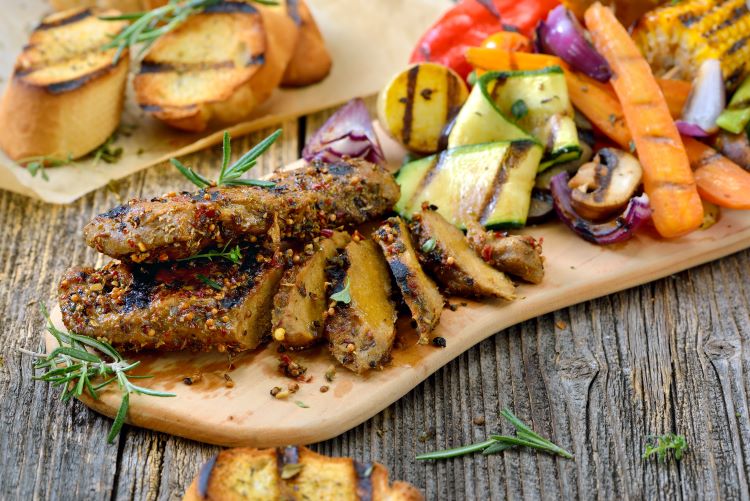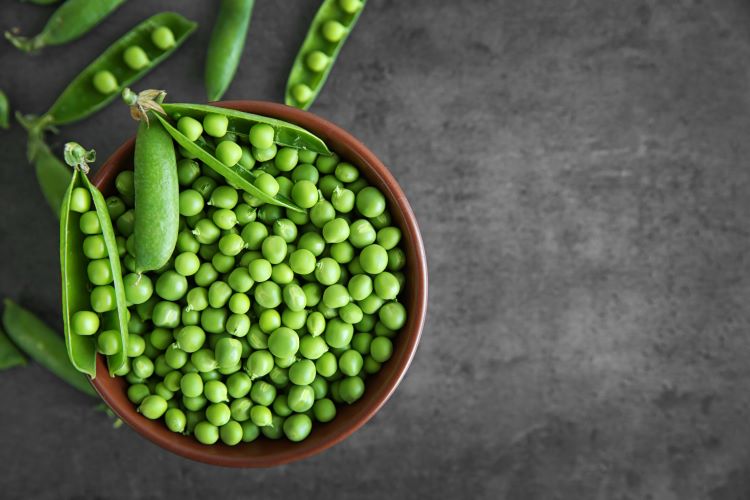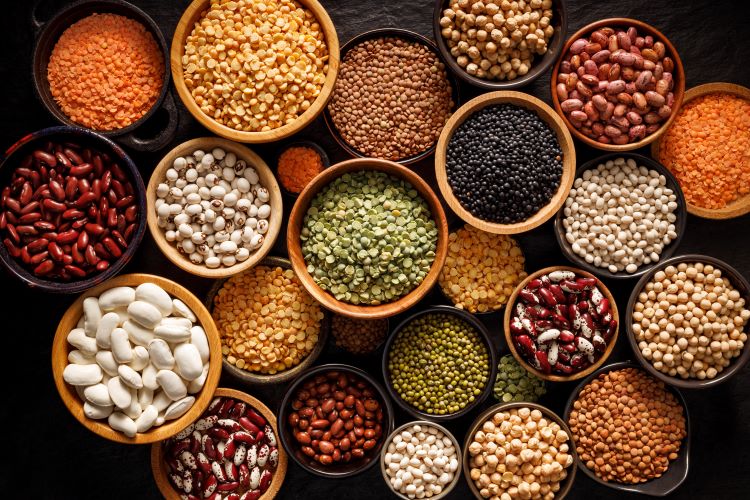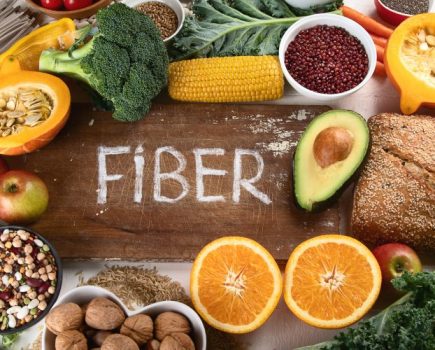A plant-based diet should by no means be a protein-poor one. Here’s our pick of the best high-protein vegan foods to support your fitness plans in 2024…
Embracing a vegan lifestyle not only promotes animal welfare and environmental sustainability but also offers numerous health benefits. Just like the misconception that healthy foods have little taste, there’s a belief that a plant-based diet lacks protein. But there are a plethora of high-protein vegan foods – from natural wholefoods to plant-based protein bars – that can power you through your day and support muscle development.
Whether you’re an athlete, a fitness enthusiast or simply health-conscious, these protein-packed plant-based options will nourish your body and satisfy your taste buds.
By incorporating these high-protein vegan foods into your diet, you can fuel your body, support muscle growth, and maintain a balanced and nourishing lifestyle. Embrace the power of plants and let them fuel your journey to a healthier, happier you. If you’re short on time or new to cooking, you could also try a vegan meal delivery service to kick-start your plant-based journey.
1. Legumes
Legumes are a cornerstone of any vegan’s protein-rich diet. These include chickpeas, lentils, black beans, and kidney beans, among others. A mere cup of cooked lentils offers around 0.6oz / 18g of protein, making them a fantastic choice for stews, soups and salads. In particular, opting for green lentils packs a punch with around 0.3oz / 9g of protein per cooked cup
2. Tofu
Tofu, made from soy milk, is a versatile and popular high-protein vegan food. A 3oz / 85g serving of firm tofu contains roughly 8g of protein. It can be grilled, stir-fried or blended into creamy sauces and smoothies, making it an adaptable addition to various dishes. It also contains fibre, calcium, iron and zinc and is less calorific compared to meat.
3. Tempeh
Another soy-based delight, tempeh is an excellent choice for those looking to boost their protein intake. A 3oz / 85g serving can provide approximately 0.5oz / 15g of protein. Tempeh’s nutty flavour and chewy texture make it a worthy substitute for meat in sandwiches and stir-fries.
4. Edamame
These young, green soybeans are a popular snack and appetiser. Boasting an impressive 0.7oz / 18.4g of protein per 5.6oz / 160g serving, edamame is also rich in beneficial fiber, making it a satisfying and nutritious treat.
 5. Seitan
5. Seitan
Made from hydrated gluten, seitan is a protein powerhouse, packing around 0.7oz / 21g of protein per 3oz / 85g serving. Its chicken-like texture and ability to absorb flavours make it an ideal meat substitute in dishes such as stews, kebabs and sandwiches.
6. Wholegrains: Quinoa & Oats
Often referred to as a ‘superfood’, quinoa is a complete protein, meaning it contains all nine essential amino acids. One cooked cup offers around 0.3oz / 8g of protein. Use quinoa as a base for salads, buddha bowls or as a substitute for rice in a nutrient-packed risotto.
Oats are a breakfast staple and provide around 0.2oz / 6g of protein per cooked cup. Start your day with a hearty bowl of oatmeal and top it with nuts, seeds and fruits for added nutrition.
7. Chickpea Flour
Chickpea flour, also known as gram flour, is made from ground chickpeas. It’s a versatile ingredient in savoury dishes. With approximately 0.7oz / 21g of protein per cup, it’s an excellent option for making vegan omelettes, pancakes and fritters and is used to make chickpea pasta.
8. Hemp Seeds
Hemp seeds are highly nutritious, providing about 0.4oz / 11g of protein per 3-tablespoon serving. Sprinkle them on top of salads, smoothies or yogurt to boost your protein intake and benefit from their omega-3 and omega-6 fatty acids. The fatty acids found in hemp seeds contribute to their anti-inflammatory properties, providing potential relief from inflammatory conditions such as arthritis.
9. Chia Seeds
These tiny seeds may be small, but they pack a punch with around 0.2oz / 4.6g of protein per 2-tablespoon serving. Chia seeds are also a great source of fibre and can be used in porridge and smoothies and act as a great binding agent and egg replacement for baked goods.
 10. Almonds
10. Almonds
Almonds are not only a delicious snack but also a source of plant-based protein, offering approximately 0.2oz / 6g per ounce. Enjoy them as almond butter, in trail mix or as a crunchy topping for salads.
11. Peanut Butter
Peanut butter is not only delicious but also a high-protein vegan food. With around 0.3oz / 8g of protein per 2-tablespoon serving, it’s perfect for sandwiches, smoothies or as a dip for apple slices. Peanut butter tends to have the highest amount of protein per serving of all nut butters.
12. Vegan Yogurt
Some plant-based yogurt alternatives are fortified with protein, providing approximately 0.2oz / 6g of protein per serving. Look for options made from soy, almond or pea protein.
13. Vegan Protein Powders
Various plant-based protein powders, such as pea, rice, hemp and soy protein, offer convenient ways to boost your protein intake. Mix them into shakes, porridge or use them in baking for additional protein in your favourite treats.
14. Spirulina
This blue-green algae is one of the most protein-rich plant-based foods available, containing around 0.3oz / 8g of protein per 2-tablespoon serving. Add it to smoothies, juices or sprinkle it on salads for a nutritious kick.
 15. Green Peas
15. Green Peas
Don’t underestimate the protein content of these little green gems. One cup of cooked green peas provides approximately 0.3oz / 8g of protein. Add them to stir-fries, pasta dishes, risotto or enjoy them as a side dish.
16. Seeds
Sunflower seeds, in particular, contain about 0.2oz / 6g per ounce. Sprinkle them over salads or use them as a topping for plant-based yogurt. Pumpkin seeds are also a versatile snack, providing approximately 0.3oz / 9g of protein per ounce. Eat raw or sprinkle over soups for an extra hit of protein.
17. Nutritional Yeast
Not only does it add a cheesy flavour to dishes, nutritional yeast is also a good source of protein, offering around 0.2oz / 8g per 2 tablespoons. It’s also rich in vitamin B12, folate and fibre. Sprinkle it over popcorn, pasta or salads.
18. Artichokes
These delicious veggies provide approximately 0.2oz / 4g of protein per medium-sized artichoke. Enjoy them grilled, roasted or in salads.
19. Asparagus
One cup of cooked asparagus offers around 0.2oz / 4g of protein. Roast or steam them to maintain their nutritional value.
20. Brussels Sprouts
These mini-cabbages provide about 0.2oz / 4g of protein per cup when cooked. Roast or sauté them for a tasty side dish.






